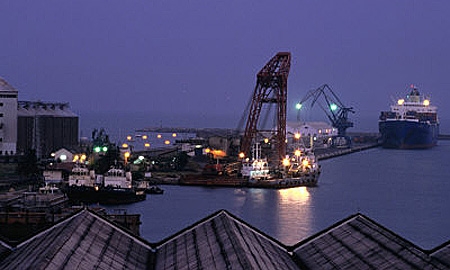
How does Ghana rate as a regional maritime hub?
The ports of Ghana are in competition with all the other ports in the sub-region. The landlocked countries need to have access to the sea for the transportation of their foreign trade and they are at liberty to shop for the best and most efficient provider of ports services.
The shipping lines using our ports are our most precious customers. They decide whether they want to use a port as a hub or not taking into consideration several factors such as productivity of the port, rates and charges, security and safety of cargo in the port, and hinterland transport connections and their reliability.
It is true that the Port of Abidjan is our biggest competitor but we all know that Ghana has been more stable politically, and productivity, cost of doing business in the ports, and hinterland connections, especially by road, are big advantages for us.
Plans are afoot to improve and further develop the railway network as well as river transport especially on the Volta Lake and we hope that these factors in the long run will make Ghana the hub of shipping activity in the sub-region.
What are some of the challenges you are facing?
The maritime infrastructure in Ghana today is not in the best of shape. Takoradi Port was built in 1928 and underwent just a small expansion in 1956. In the 1990s, some improvements were made at the port. Currently, most of the infrastructure which was built for the small vessels of the 1920s is what is still being used. The port is hemmed in by the municipality and expansion landwards is virtually impossible. Future development of the port would therefore have to involve reclamation of land and dredging.
In Tema, even though it is a more modern and bigger port, the problems are very similar. Bigger vessels are calling at the ports and therefore deeper drafts are needed. Container vessels are calling and therefore bigger and more sophisticated types of handling equipment are needed in addition to vast spaces for the container yards. The municipality has also grown and hemmed in the port and expansion landwards is virtually impossible so the next phases of development would have to be done on reclaimed land, which is more expensive.
Is GPHA looking for partners for the US$700 million upgrade planned for Takoradi Port and the US$500 million upgrade planned for Tema?
We are open and available for discussions with all prospective investors who are prepared and willing to invest in our ports. We will consider all forms of PPP be it BOT, BOOT or EOT, depending on the offers available and how suitable they are to our needs.
0 COMMENTS